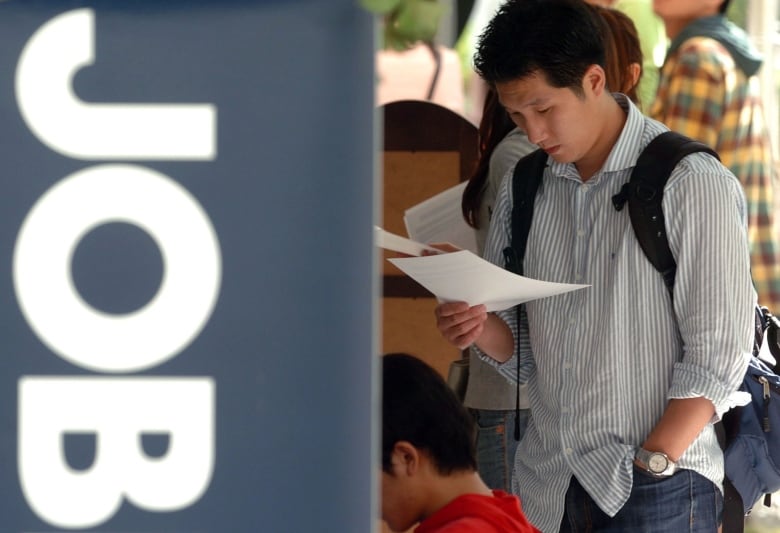New limits on international students are causing turmoil among colleges, universities
New, tighter restrictions for international students at Canadian universities and colleges are worrying industry watchers, who warn that continued uncertainty about post-secondary could damage Canada’s reputation as an attractive place to study and live.
Canada’s post-secondary sector was already adapting to a reduction of international study permits and other measures announced in January when Immigration Minister Marc Miller further tightened the cap on Wednesday. He dropped the intake by an additional 10 per cent for the next two years (437,000 will be permitted) and it now includes graduate and doctoral students, who were exempted earlier. He also added tightened eligibility for the Post-Graduate Work Permit program.
“There’s room for improvement,” Miller said in an interview on CBC’s Power and Politics after the announcement. “I’m not entirely confident that institutions have adapted their recruitment practices.”
Noting that provinces have provided inadequate financial support to post-secondary institutions over the years, Miller added that provincial governments “really need to step up” to work with schools on this issue.
“The federal government has a role in this, but people’s balance sheets can’t be determined by whether they get international students or not. It’s a luxury. It’s a privilege and not necessarily a right.”
Immigration Minister Marc Miller joins Power & Politics to explain why he’s cutting permits for international students by another 10 per cent. Plus, why is Miller accusing Conservative premiers of “weaponizing” a working group discussing Canada’s high number of asylum claimants?
The dramatic increase of international students — more than 1.5 million study permits for post-secondary were granted from 2018 to 2023 — has come under greater scrutiny, with some linking it to straining housing and health care. Lack of proper support for international students and questionable programs targeting them have also come to light.
“There’s no question as a country, we need to make sure we’ve got the housing and the infrastructure and the services in place to properly welcome [international students] and support them,” said Gabriel Miller, president of Universities Canada, the national organization representing 97 public universities across the country.
However, the measures have hit universities “like an earthquake,” he said, in Ottawa.
With international students’ tuition up to four to five times what domestic students pay, “we’re seeing budget deficits in universities right across the country: Quebec, Ontario, the Maritimes.”
Though universities are still tallying official enrolment numbers, which are expected in October, Miller says the data so far indicates that international student enrolment will be even lower than anticipated — with the chaos from the new policies likely pushing talented students who would contribute much to Canada to turn elsewhere instead.
“It’s really costing Canada the people we are gonna need to be doctors, to be engineers, to be entrepreneurs,” he said.
Canada’s reputation faltering
Canada’s global reputation is indeed in flux, noted Meti Basiri, co-founder and CEO of Kitchener, Ont.-based ApplyBoard, a platform that connects international students, recruiters and post-secondary institutions.

We’d been the first choice of international students for a decade, according to Basiri, who himself came to Canada from Iran to study in 2011. However, Canada’s since fallen to third, after the U.S. and the U.K.
He questions measures that make Canada a less welcoming place: Restrictions that discourage spouses hurt more mature students, for example.
Still, Basiri supports those that provide more transparency. The doubling of foreign students’ income requirement better reflects “the true cost of Canada,” he says, while linking work permits to sectors with labour shortages provides guidance to prospects who want to study and stay.

That, however, is a big concern for Pari Johnston, president of Colleges and Institutes Canada.
“It’s going to require public colleges to prove their labour-market alignment, in accordance with national standards,” she said, noting that colleges are already very attuned to local and provincial labour-market needs.
The reforms announced since January have already had a detrimental impact on colleges, particularly those in rural and remote communities, she said.
“They’ve had to cut programs. They’ve had to put in hiring freezes. They’ve had to put on hold facilities renewal and student residences being built.”
‘A little bit meaner, a little bit crueler’
Universities and colleges aren’t nimble, so it will take time for them to pivot and adapt to these dramatic changes, notes Dale McCartney, an assistant professor at the University of the Fraser Valley in Abbotsford, B.C., who researches Canadian international student policy.
“Every one of these policy announcements now is just, like, being a little bit meaner … a way to be a little bit crueler to international students — make their lives just a little bit harder, to make it a little bit harder for them to become citizens.”
Researcher Dale McCartney on what prompted the sharp rise in international students, the role of work permits and how officials have long marketed post-secondary studies as an easier path to settling in Canada.
Since the 1980s, the federal government, provinces and post-secondary institutions have all played a part in selling international study as an easier, viable path for newcomers to make a life here, he said.
However, McCartney feels that the latest wave of restrictions on international students is being motivated more by politics than being strategic with policy.
“They are in this political moment trying to steal some of the Conservative Party’s thunder about the complaints about migration and immigration,” he said.
“What it looks like is them being harder on migrants — they’re cutting the numbers. They’re making it harder to become workers afterwards. They’re making it harder to stay in Canada — and I think that they see that as good politics right now, even if it’s not very good policy necessarily.”
View original article here Source











